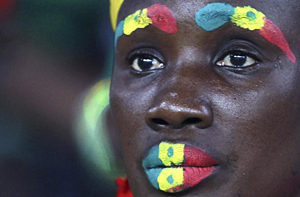10,000 Xinjiang grads to receive job training
Updated: 2012-02-03 18:02
(Xinhua)
|
|||||||||
URUMQI - China's far western Xinjiang region will send 10,000 unemployed college graduates this year to receive job training in inland provinces and cities, local authorities said Friday.
Last year, the regional authorities launched the massive training program, sending the first batch of 12,000 jobless college graduates to inland regions, amid concerns that jobless educated youth could spark unrest.
The second group, who mostly graduated in 2010 and 2011, are expected to leave Xinjiang for the two-year training program in March and April this year, the Xinjiang regional organization department said in a statement.
The participants will be offered jobs after passing an exam when they return. They can also choose to stay and work in the 19 inland provinces and cities, according to the statement.
To ensure all the trainees can be employed after coming back, the authorities will create 12,200 jobs, including 5,000 jobs in companies, 5,000 bilingual teaching positions and 2,200 jobs at social security agencies and rural medical institutions.
Local authorities have rolled out an aggressive job creation program which aims to provide 400,000 new jobs this year as well as ensure that 85 percent of this year's college graduates are able to find jobs.
Xinjiang is a desert region, with 40 percent of its population belonging to the Uygur ethnic minority. Agriculture has long been the region's primary economic engine. The development of industries and services, however, has lagged far behind those of other Chinese regions, limiting job prospects for local residents.
Creating jobs has been a top priority for Xinjiang officials over the past two years, as they consider stable income through employment crucial to lifting poor Uygur families out of poverty and preventing younger Uygurs from turning to crime to support themselves and their families.
In July 2009, the regional capital of Urumqi was hit by the worst riots seen in decades, leaving 197 people dead and about 1,700 others injured.
Authorities blamed overseas separatists for instigating the riot, but have since vowed to boost economic development and job creation in the region to solve "the root problem of poverty."
Hot Topics
Kim Jong-il, Mengniu, train crash probe, Vaclav Havel, New Year, coast guard death, Internet security, Mekong River, Strait of Hormuz, economic work conference
Editor's Picks

|

|

|

|

|

|







